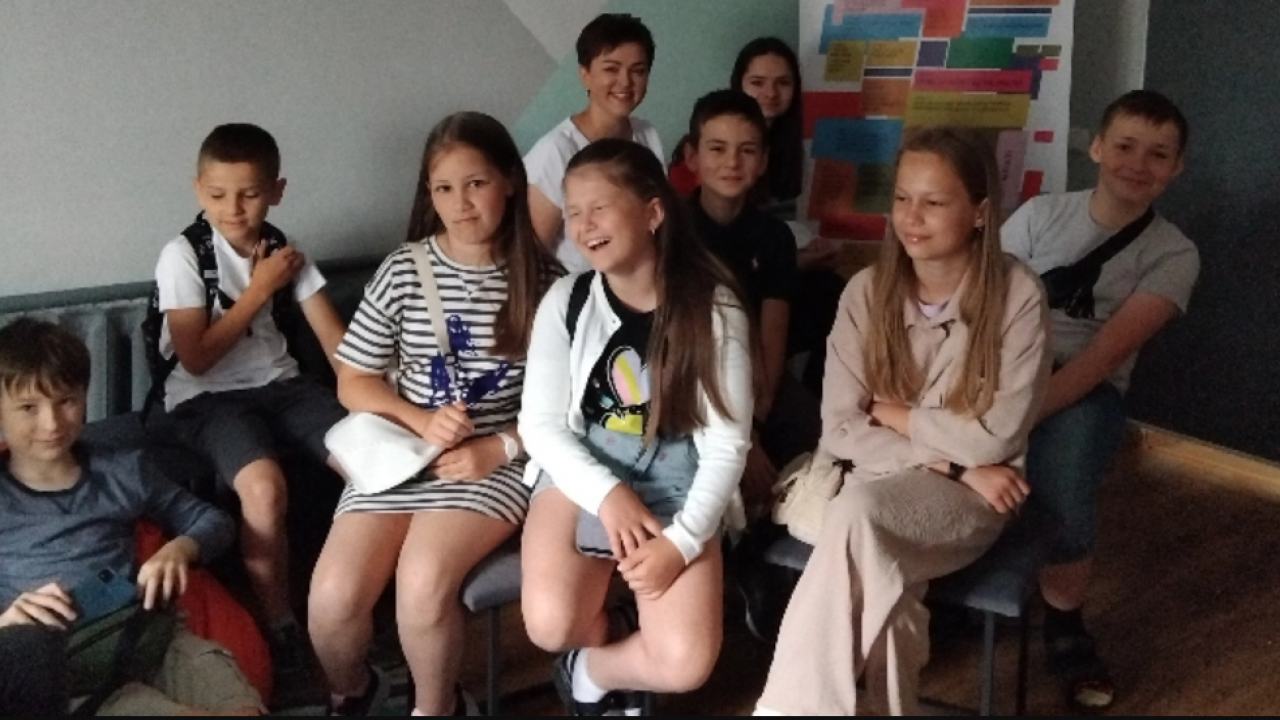Oksana Sushchuk hoped and believed that she would be able to energize and unite the community through documentary cinema. The film club at the museum started in January 2023. Several months later, the museum director, who also became part-time film club moderator, launched an advocacy project to unite community volunteers, make them a visible force in the town’s life, and create the Public Council on Volunteering at the Kivertsi Town Council. Implementing this project was not easy. Oksana had to overcome the inertia of the community residents and their long-established belief that the responsibility for making important decisions rests with the authorities. The DOCU/CLUB Network team of the NGO “Docudays” provided Oksana Sushchuk with methodological and informational support and expert advice, showing her effective ways of interacting with the authorities and influencing them during advocacy. Oksana Sushchuk Oksana Sushchuk worked with a team of like-minded locals to implement this knowledge and recommendations in practice. There were many challenges on their way: misunderstandings between project participants, conflicts with local authorities, and even, as strange as it may sound, passivity of numerous volunteer organizations in the town regarding the idea to create the Public Council on Volunteering. “I didn't think it would be so hard. It was a new and unexpected experience for me. Implementing social changes in the local community is difficult. It seemed to me that volunteering was such an undeniably heroic manifestation of activism that there could be no resistance to the idea of creating a Public Council. However, at some point, the disagreements between me and the city authorities got in the way of my advocacy campaign. It was a challenge for me,” admits Oksana Sushchuk. She could have abandoned her idea, but decided not to give up. “I'm glad I didn't stop or put an end to my advocacy project. For me, this is already a victory. I tried to find different ways to fulfill the tasks I set for myself,” she says. Screening at the film club The film club moderator decided to support novice volunteers who had just started working. In the community's schools, students and teachers make trench candles and draw pictures for soldiers, and community members gather to weave camouflage nets and warm socks. “I realized that I had to showcase this activism in my advocacy project, so that people could see how large this movement is and feel their strength and mutual support,” says the campaign's initiator. Oksana Sushchuk started traveling to remote villages of the community, screening films from the DOCU/CLUB Network's collection. “We watched and discussed films about volunteers with children and adults. Among the films, there were ‘Tales of a Toy Horse’ by Ulyana Osovska and Denys Strashnyi and ‘Language’ and ‘Euromaidan SOS’ by Serhiy Lysenko. Thus, viewers could feel like a part of a large-scale volunteer movement. This increases morale and opens up a completely different view of our society and its future,” says the moderator. This activity had one more, and rather unexpected, consequence for the Kivertsi museum and the town community: the museum became visible to grantors. Young audience of the film club “Our partners have spread the word about us in Germany. The Joan Miro Elementary School in Berlin’s Charlottenburg organized a marathon for its students called 'Running for Children Fleeing War.' The children found a sponsor in their community, their families paid a contribution of 20 euros, and the students had to run a certain distance or participate in a competition. In this way, they raised a certain amount of money and were looking for a small community in Ukraine where they could help children who were really affected by the war and were engaged in some kind of activism,” says Oksana Sushchuk. Grantors from Germany paid attention to Oksana's campaign and learned about the child volunteers who collect necessary items, help the military, and support displaced children. It was also important to them that the museum hosts many film screenings and workshops to help children who were forced to leave their homes because of the war integrate into a new environment. “They asked about the museum’s needs. And I said that I would like to create a room in the museum where we could watch documentaries about children's rights and violations of these rights, teach young people to resist such violations, and support their activities. I want children to feel free and comfortable, and I want the film club to be a center of fruitful but informal communication, in contrast to traditional and conservative museum space,” the museum director says. Oksana Sushchuk called the new space the Dialogue and Communication Room. Now she can gather youths and adults from the community to show documentaries, hold discussions and debates, and organize various workshops in comfortable surroundings and with high-quality equipment. Meetings with local activists and volunteers take place in the Dialogue and Communication Room. The idea turned out to be surprisingly successful. Oksana says that high school students in Kivertsi are already learning how to apply for international grants and are starting to implement their ideas. “It's too early to discuss the results of the work, but it's great that children want to come back to the museum. They ask what other films I will show, and whether they can hold their own event in the museum. I always say yes. Why not? For me, the most important thing is that they have this urge, and the museum's doors will always be open to young people,” the director assures. Of course, this is an additional responsibility for her, because the administration has to ensure the safety of museum exhibits, so Oksana makes sure to explain the rules to visitors and teach them to behave carefully in the museum space. She says that, when children feel they are trusted and perceived as partners, there are no problems. This is what the Dialogue and Communication Room at the museum looks like “They work peacefully on their ideas. I like the fact that children take the initiative and want to do something useful by themselves. I really want to support this activity in some way. I'm thinking about organizing a school for young moderators at the museum to train those who are ready to join the film club,” says the director. Oksana Sushchuk came up with this idea after an event organized by students to mark the Day of the Heavenly Hundred Heroes. Students asked for permission to hold their event at the museum and screen a documentary. The museum director offered her cooperation to prepare a thematic exhibition using the museum's collections. At a meeting with community volunteers The involvement of students in this work and the sense of participation in an important cause convinced her that the museum's film club was on an important mission. “Many films in our collection are relevant to young people. We have ‘Swatted’ by French director Ismaël Joffroy Chandoutis, which is dedicated to cyberbullying and cybersecurity. We have ‘Bully’ by American director Lee Hirsch, which leaves no one indifferent and helps fight the problem of bullying in schools. We have ‘E-Wasteland’ by Australian director David Fedele. By the way, children are very sensitive to the topic of garbage. I never thought that it would cause such a reaction and spark discussions about recycling. They are very interested in this,” says Oksana Sushchuk. When asked what she will do when the young viewers of the film club want not only to discuss problems but also to act and fight them, Oksana Sushchuk says that she is ready for such a development. Oksana Sushchuk “I am interested in working with children and young people. It's great when they turn to me for help. I am ready to put other things aside and prioritize this work. Let them come to me, and we will definitely come up with something,” she says. Currently, the museum director has begun implementing the “MuZeynyi Ganok” project to turn the Kivertsi Local History Museum into a public community space for community members to socialize. Many events have already been planned, including weekly meetings at the “Opening New Horizons” film club. The development of the DOCU/CLUB Network is funded by the United States Agency for International Development (USAID), the Embassy of Sweden in Ukraine, the National Endowment for Democracy (NED) and Fondation de France. The opinions, conclusions, or recommendations are those of the authors and compilers of this publication and do not necessarily reflect the views of the governments or charitable organizations of these countries. The authors and compilers are solely responsible for the content of this publication.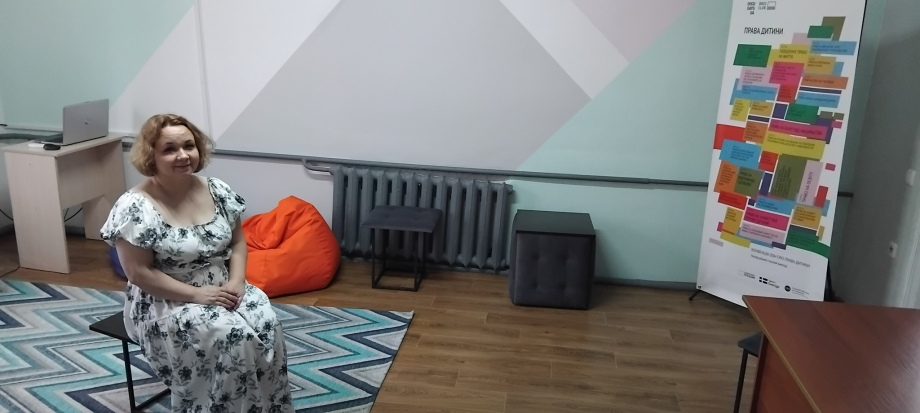
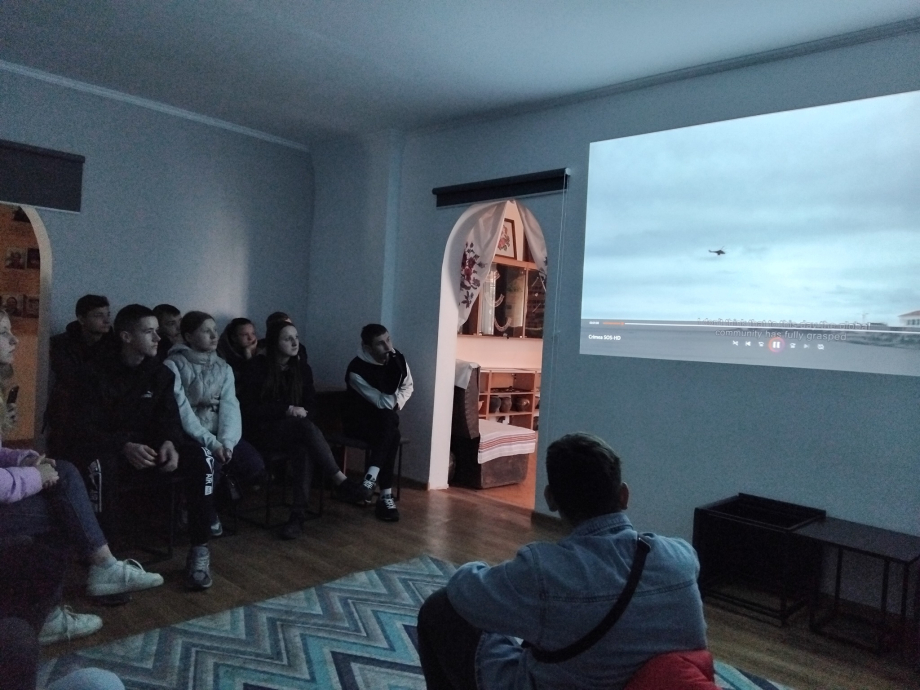
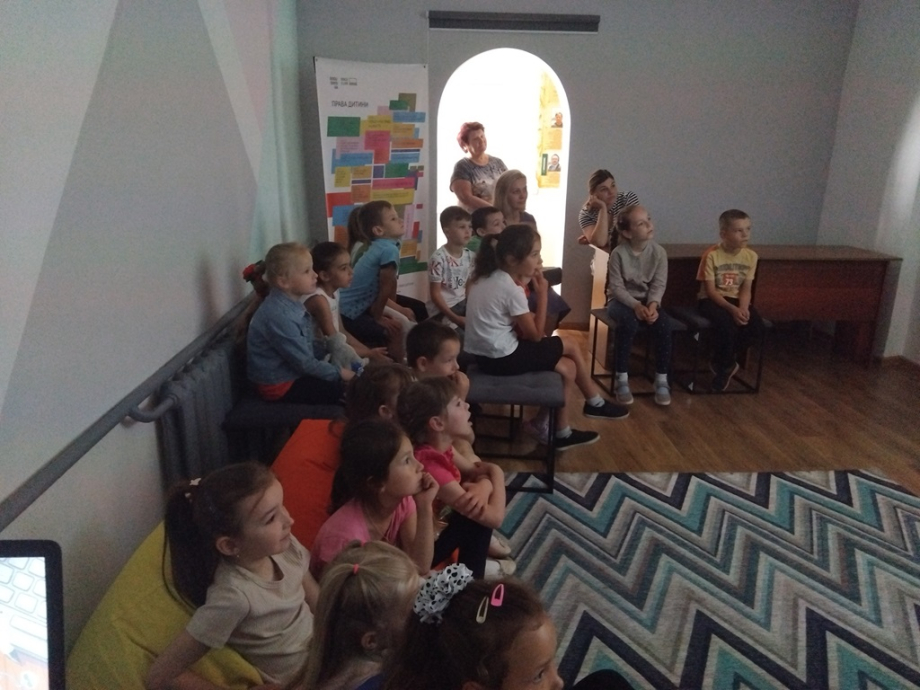
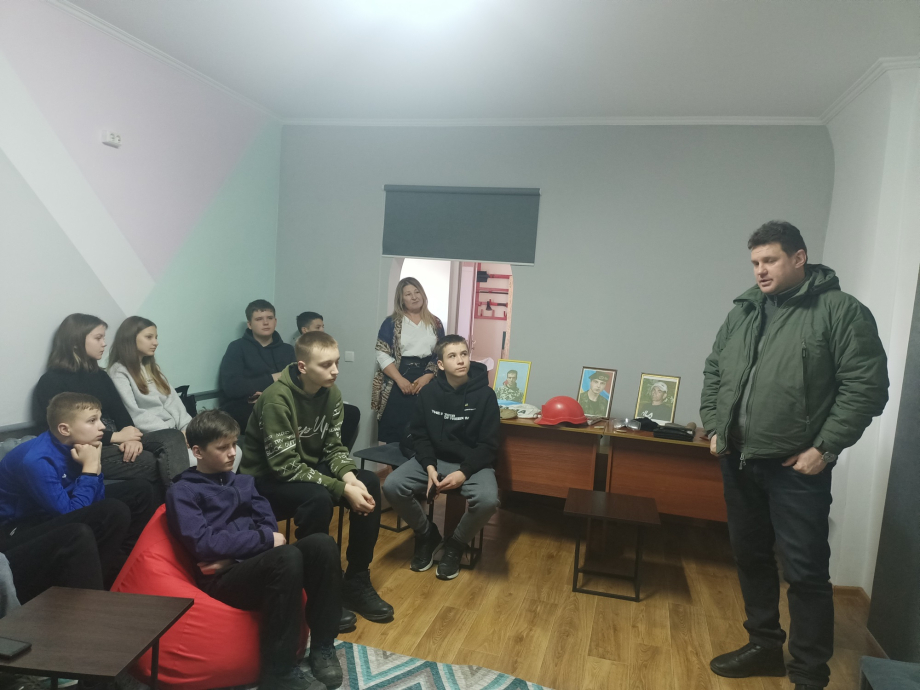
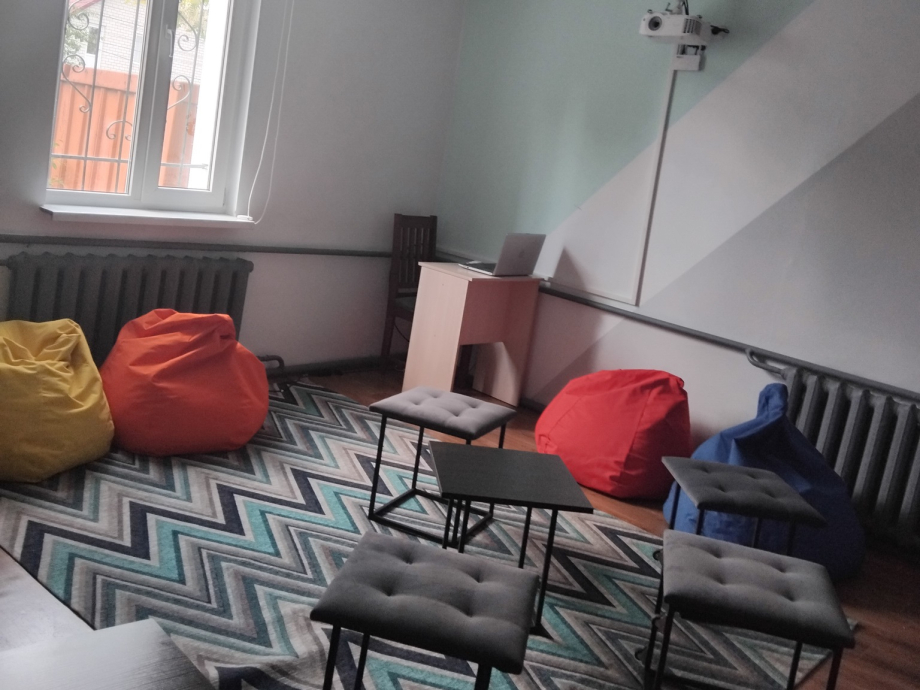
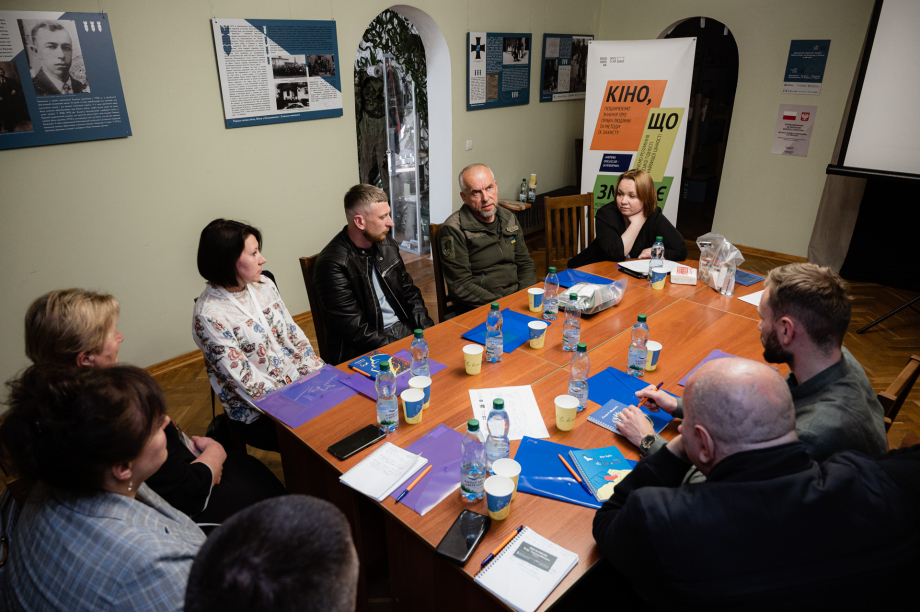
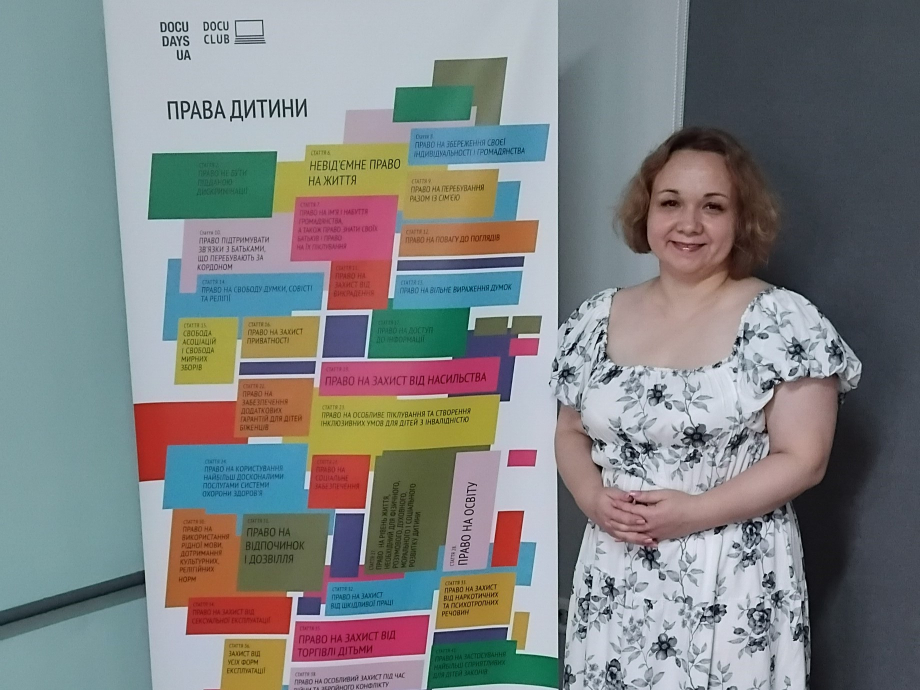
COMMUNITY SPACE: THE DIALOGUE AND COMMUNICATION ROOM WAS OPENED IN KIVERTSI DUE TO A FILM CLUB
02 August 2024
The Docudays UA film club “Opening New Horizons” at the Kivertsi Museum of Local Lore was a revelation for the town of Kivertsi. When the museum's director Oksana Sushchuk learned about the opportunity of creating a human rights documentary film club, she realized it would help publicize the work of the cultural institution in the community.
